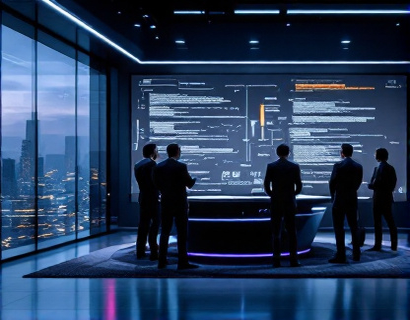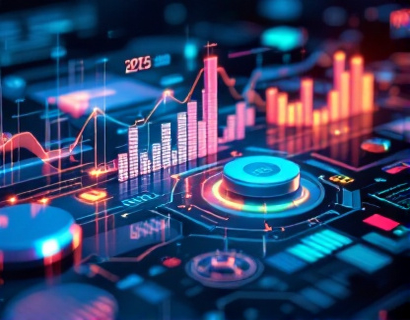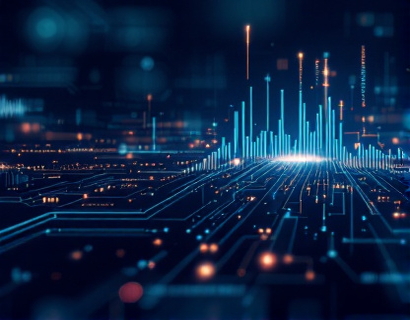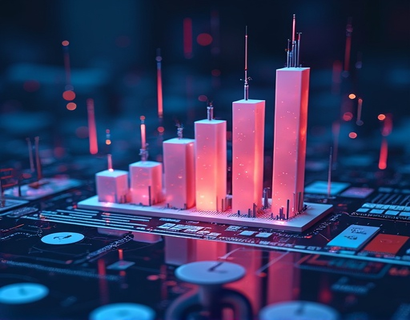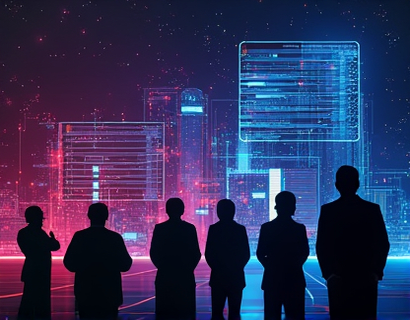AI-Powered Marketing Agents: Revolutionizing Business Growth through Intelligent Automation
In the rapidly evolving landscape of digital marketing, businesses are constantly seeking innovative solutions to stay ahead of the competition. One of the most transformative advancements in this domain is the emergence of AI-powered marketing agents. These intelligent tools leverage cutting-edge artificial intelligence to automate and optimize marketing strategies, significantly enhancing customer engagement and return on investment (ROI). By integrating AI-powered marketing agents, businesses can streamline their operations, allowing them to focus on core activities with greater confidence and efficiency.
The Role of AI in Modern Marketing
Artificial intelligence has become an indispensable asset in the marketing world. Unlike traditional marketing methods that rely heavily on human intuition and manual effort, AI-driven solutions offer precision, scalability, and real-time insights. AI algorithms can analyze vast amounts of data, identify patterns, and make predictions with a level of accuracy that surpasses human capabilities. This capability is particularly valuable in marketing, where understanding customer behavior and preferences is crucial for success.
Automating Marketing Processes
One of the primary benefits of AI-powered marketing agents is their ability to automate repetitive and time-consuming tasks. From social media management to email marketing and lead nurturing, these agents can handle a wide range of marketing activities with minimal human intervention. This automation not only saves time but also reduces the risk of human error, ensuring that marketing efforts are consistent and effective.
For instance, AI can schedule social media posts at optimal times based on audience engagement data, ensuring maximum reach and interaction. Similarly, email marketing campaigns can be personalized and optimized in real-time, increasing the likelihood of conversion. By taking over these tasks, AI-powered agents allow marketers to allocate their time and resources more strategically.
Enhancing Customer Engagement
Customer engagement is a critical component of any successful marketing strategy. AI-powered marketing agents excel in this area by providing personalized and contextually relevant interactions. Through natural language processing and machine learning, these agents can understand and respond to customer inquiries with human-like conversational skills. This capability not only improves customer satisfaction but also builds trust and loyalty.
Chatbots, a common application of AI in customer engagement, can handle a wide range of customer interactions, from answering frequently asked questions to guiding users through the purchasing process. By providing instant and accurate responses, chatbots enhance the customer experience and free up human agents to focus on more complex and high-value tasks.
Optimizing Marketing Strategies
AI-powered marketing agents are not just about automation; they are also powerful tools for strategy optimization. By continuously analyzing data and learning from past campaigns, these agents can identify the most effective marketing channels, content types, and messaging strategies. This data-driven approach enables businesses to make informed decisions and adjust their tactics in real-time, maximizing the impact of their marketing efforts.
For example, AI can analyze the performance of different ad creatives, targeting options, and bidding strategies to determine the best combinations for a given campaign. It can also predict which customer segments are most likely to convert, allowing marketers to focus their resources on the most promising opportunities. This level of insight and precision is invaluable in a competitive market where every percentage point of improvement can make a significant difference.
Maximizing ROI
Return on investment is a key metric for any business, and AI-powered marketing agents play a crucial role in maximizing ROI. By automating and optimizing marketing processes, these agents help ensure that every dollar spent yields the maximum possible return. The ability to precisely target the right audience with the right message at the right time reduces waste and increases conversion rates.
Moreover, AI can provide detailed analytics and reporting, offering insights into the performance of marketing campaigns. These insights enable businesses to identify areas for improvement and adjust their strategies accordingly. For instance, if a particular ad creative is underperforming, AI can quickly flag this issue and suggest alternative approaches. This proactive approach to optimization ensures that marketing budgets are used efficiently and effectively.
Empowering Marketers to Focus on Core Activities
Perhaps one of the most significant advantages of AI-powered marketing agents is their ability to empower marketers to focus on their core strengths. By handling mundane and repetitive tasks, these agents free up time for marketers to engage in strategic planning, creative thinking, and high-level decision-making. This shift allows businesses to leverage the unique skills and insights of their marketing teams, driving innovation and growth.
For example, instead of manually segmenting email lists or tracking ad performance, marketers can use AI to automate these processes and gain deeper insights into customer behavior. This freedom to focus on strategic initiatives can lead to more creative and effective marketing campaigns, ultimately contributing to the overall success of the business.
Building Trust and Authenticity
While AI-powered marketing agents offer numerous benefits, it is essential to address the potential concerns around authenticity and trust. Many consumers are wary of automated interactions, preferring human touch in certain contexts. However, when implemented thoughtfully, AI can enhance rather than detract from the customer experience.
For instance, AI can be used to augment human interactions by providing valuable insights and recommendations. Human agents can leverage these insights to deliver more personalized and meaningful engagements. Additionally, transparent communication about the use of AI in marketing can help build trust with customers, demonstrating a commitment to innovation and efficiency.
Case Studies and Real-World Applications
Several businesses have already seen significant success by integrating AI-powered marketing agents into their strategies. For example, a leading e-commerce company implemented an AI-driven chatbot to handle customer inquiries and support. The chatbot was able to resolve 80% of customer issues on the first interaction, leading to a substantial reduction in support costs and an improvement in customer satisfaction scores.
Another example is a financial services firm that used AI to optimize its email marketing campaigns. By analyzing customer data and behavior, the AI agent identified the most effective subject lines, content types, and sending times. As a result, the firm saw a 30% increase in open rates and a 25% increase in conversion rates, significantly boosting its ROI.
Challenges and Considerations
While the benefits of AI-powered marketing agents are clear, there are also challenges and considerations to keep in mind. One of the primary concerns is the initial investment required to implement these technologies. However, the long-term savings and efficiency gains often outweigh the upfront costs. Additionally, businesses must ensure that their AI systems are integrated seamlessly with existing tools and processes to maximize their effectiveness.
Another consideration is the need for continuous monitoring and refinement. AI algorithms, while powerful, are not infallible and may require adjustments based on changing market conditions and customer preferences. Regular evaluation and fine-tuning are essential to maintain the accuracy and relevance of AI-driven marketing efforts.
The Future of AI in Marketing
As AI technology continues to advance, the potential for AI-powered marketing agents to revolutionize business growth is immense. Future developments may include more sophisticated natural language processing, enhanced predictive analytics, and deeper integration with other business systems. These advancements will further enhance the capabilities of AI agents, making them even more indispensable tools for marketers.
Moreover, the ethical use of AI in marketing will become increasingly important. Businesses will need to navigate issues related to data privacy, transparency, and consumer trust. By adopting responsible AI practices, companies can not only comply with regulations but also build stronger relationships with their customers.
Conclusion
AI-powered marketing agents represent a significant leap forward in the field of digital marketing. By automating and optimizing marketing processes, these agents enable businesses to enhance customer engagement, maximize ROI, and focus on core activities with greater confidence. While there are challenges to consider, the benefits of integrating AI into marketing strategies are undeniable. As the technology continues to evolve, businesses that embrace AI-powered marketing agents will be well-positioned to thrive in the competitive landscape of the digital age.



